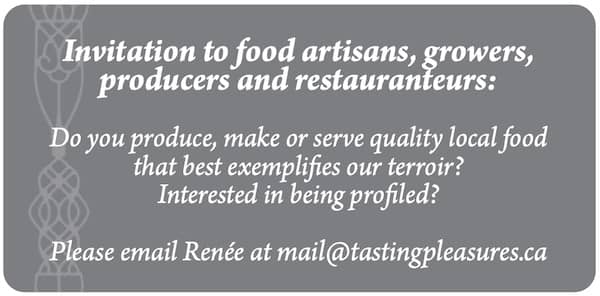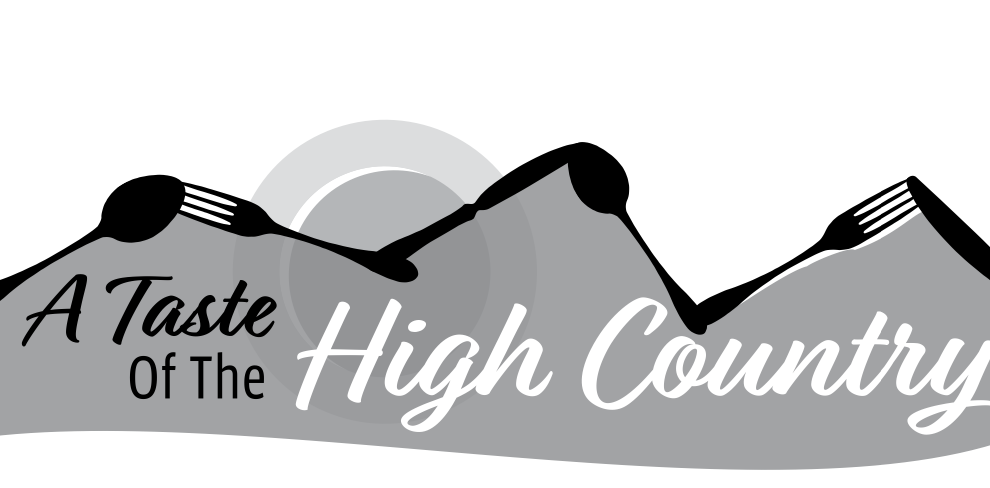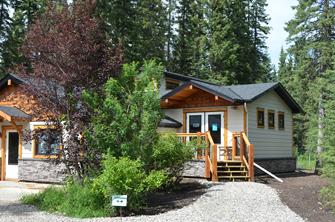Re-wild Your Garden and Your Cooking with Full Circle Adventures
Now that we know all about baking bread let’s up the ante – let’s cook with wild food plants and re-wild our gardens.
I met Julie Walker over five years ago. With the help of a Chef, we offered a unique workshop – a guided walk in the woods, learning about and harvesting wild edible plants that our Chef later incorporated in his menu; a salad, soup, main course and dessert. My job was to pair those unique dishes with Canadian wines. To this day, I can still savour the food and the magical moment our epicurean event created – Sense of Space, Sense of Taste.
Today, Julie is more committed than ever to sharing how we can eat wild food plants ethically and give back to nature by re-wilding our gardens. In her words, “I see the edible plants of the forest floor as a universal way for people to realize the value of nature’s intact native landscapes. I have a strong conservation ethic, so I love the idea of re-wilding our gardens. My own garden is a great example of that, and I could feed four people throughout the year quite easily with native plants!”

Julie Walker is the owner and program director of Full Circle Adventures. She is an avid outdoor enthusiast who successfully incorporated guiding, her love for wild food plants, and conservation practices. Over the past twenty years, she and her colleagues have offered workshops tantalizing taste buds and inspiring our inner gardener’s urges. Full Circle Adventures has deep roots in the local indigenous cultures, honouring their wisdom and knowledge.
Since many of us live on acreages, Julie suggests we first explore our own backyard by doing what she calls an “Edible Plant Walkabout.” This is an excellent activity for the whole family – touring one’s property, harvesting wild edible plants and learning to incorporate them into favourite recipes is fun. Imagine pesto, salad, stir fry and BBQ of wild foods fresh from your acreage’s underbrush? For example:
FIREWEED is a native plant that earned its name growing in the soil after forest fires. It is a beautiful member of the Evening Primrose family (Onagraceae) that attracts bees and hummingbirds. Fireweed is best consumed young before the flowers bloom. Snip clean the stalk, remove the leaves and cook the tender shoots as you would with asparagus. The taste is mild and without bitterness. The leaves can also be added to your spring green salad.
WESTERN MEADOW RUE – Atsiinaimo (Blackfoot). This plant is commonly found in our area and has tall stems with heart-shaped/round leaves. Pinky/purple and yellow flowers bloom from May to August. The tender leaves are an exquisite addition to a spring green salad. Consider adding young dandelion and fireweed leaves to your bowl of salad, and you will have family and friends talking through the dinner. Note, however, that Meadow Rue may disagree with pregnant ladies and must be consumed with caution.
LAMB’S QUARTER or “wild spinach” is another plant that grows plentifully. It can be eaten in salads or added to smoothies and juices. The leaves can also be steamed or added to soups, sautés, just as you would with spinach.
Before you go out there to forage your dinner, I encourage you to look up those plants on the web. There are excellent videos that will help you positively identify the plants. Also, make sure to only harvest a portion of the plants (say a third) – Leave plants for wildlife and plant regeneration.
Re-wilding garden is a concept that is hugely appealing to Julie, and I get why. By growing native, edible plants, you can harvest delicious fresh food as early as mid- May. Wild gardens are easy to maintain, and in doing so, you are giving back to nature. In Julie’s words, “70% of Alberta songbirds feed their young insects in the spring. These same insects rely on native plants and flowers for their food. If the insects thrive, the songbirds thrive.” Re-wilding our acreages brings back life in our yards, helps the pollinators, and recreates the ecosystems and habitats we have taken away from our wild environment.
The best part of all of this is how easy it is to do. Still, Julie first recommends a consultation. Understanding the nature of your acreages, type of soils and microclimates, sunny and shady areas will help her identify the plants that will have the best chance to thrive on your property. Once established, the plants will essentially take care of themselves. What’s more, your garden can be designed to be visually appealing and stunning year-round.
Julie’s focus is to help us understand the value of wild food harvesting but also how plants and animals depend on each other to thrive. Her vision is to engage and educate landowners, gardeners, foragers and outdoor enthusiasts about the value of preserving intact wildlands.
Her knowledge contributes to the development of best practices, protecting the fragility of our natural food ecosystems and understanding the uniqueness of our food terroir.
FULL CIRCLE ADVENTURES
www.fullcircleadventures.com

Cheers!



























